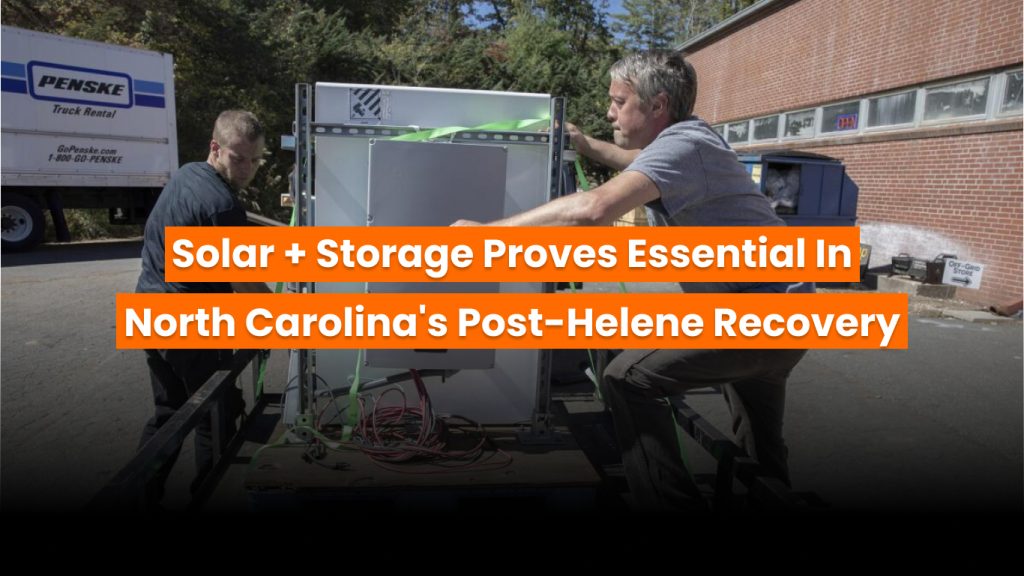In the aftermath of Hurricane Helene, which struck North Carolina in September 2024, communities are still grappling with widespread devastation. The storm caused catastrophic flooding, downed power lines, and left many areas without electricity for extended periods. In this challenging scenario, solar energy systems combined with battery storage have emerged as critical tools for providing reliable power to affected regions.
According to the North Carolina Sustainable Energy Association (NCSEA), “solar + storage isn’t just a power solution — it’s a lifeline.” This sentiment reflects the pivotal role that solar-powered microgrids and portable battery systems have played in disaster response and recovery efforts. These technologies have enabled essential services to continue operating and have supported communities in regaining a sense of normalcy.
In Western North Carolina, over 395,000 residents lost power due to the storm’s impact. Innovative solutions, such as microgrid installations, helped restore power to critical facilities faster than traditional grid infrastructure could. Emergency mobile solar + storage deployments brought relief to isolated rural communities, ensuring access to electricity for medical clinics, water generators, communications equipment, and other vital resources.
The Footprint Project, a nonprofit organization, played a significant role in these efforts by deploying solar-powered generators and microgrids to disaster zones. They established nearly 50 solar microgrids post-Helene and aim to create a “lending library” to deploy in the wake of future disasters.
In addition to these initiatives, the North Carolina Sustainable Energy Association has launched a Disaster Relief Fund to support the installation of microgrids in areas of highest need. Funds raised through this initiative are used to purchase equipment such as solar panels, battery storage, inverters, and other electrical components, as well as to support installers and other organizations assisting with installations.
The state’s response to Hurricane Helene underscores the importance of integrating solar + storage solutions into resilience plans. As communities continue to recover, these technologies offer a sustainable and reliable means of ensuring energy access during emergencies. The lessons learned from this experience are shaping future strategies for disaster preparedness and response in North Carolina and beyond.
For more information on the ongoing recovery efforts and how to contribute, visit the North Carolina Sustainable Energy Association’s website.




